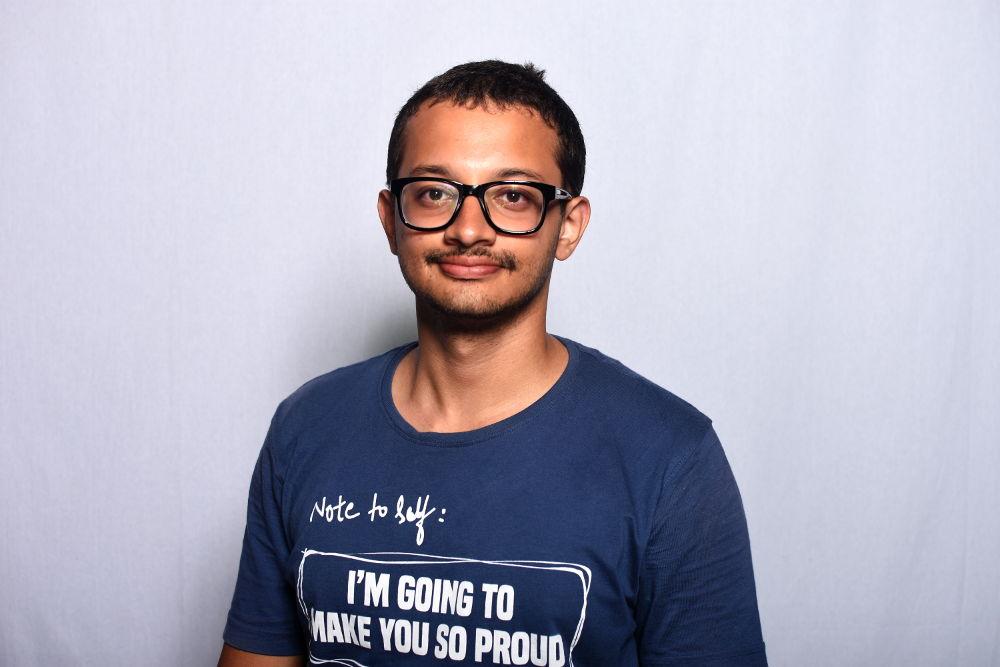
Paritosh Gaiwak
Paritosh Gaiwak
Internships form an integral part of a student’s life. In every phase, from undergraduate to post-doctorate, internships are sought by students. The main reason is the industrial exposure that an internship provides, which is often lacking in the academic curriculum. Another aspect is the financial aid that paid internships provide, and the possibility of converting an internship to a co-op and eventually to a full-time position.
An interview is the first formal interaction an applicant has with the employer and is the most important part of the recruitment process. It also gives an applicant the opportunity to showcase their talent. But participating in an interview is not as straightforward as a simple question and answer session. It is an art, and just like any other art form, it requires meticulous preparation.
The most important factors to acing any interview include conducting proper background research, crafting a concise introduction, and practicing how to explain the relevance of projects listed on one’s resume. This shall give the person confidence to face all kinds of questions that may be asked in the interview.
Before one prepares for an interview, they must research the companies that work in their fields of interest. It gives them information about the kind of the projects a company is working on. This will allow the applicant to relate the working of the company to their experience and projects. Questions such as “What do you know about us?” or “Why do you wish to work for us?” are asked frequently in interviews. If a candidate is able to describe the domain of the company and the projects that the company works on in detail, it increases the chances of the selection of that candidate for the job.
Aanchal Gadia, a fourth-year studying fashion and textile management, interned at Unifi Manufacturing in Greensboro as a market research intern in summer of 2017.
She said that the experience acquired while working on a project counts, and one must be confident about the work they have done. “I would advise all the students to research the interviewer and the company they are appearing for as thoroughly as possible,” Gadia said. “Nothing impresses the interviewers more that your knowledge about them, and it also shows sincerity and dedication on your part.”
The first, and by far the most frequent, question in an interview requires the applicant to introduce themselves. The introduction creates a first impression, and a proper one can boost the chances of the candidate. The introduction does not mean your life story. Narrow the introduction down to your passions, skills and experiences, and convey as much information as briefly as possible. Brevity and specificity during an interview is a sign of a focused approach. It also helps an interviewee to allocate more time to discuss other topics, along with showing preparedness for the interview.
Tushar Pahuja, a graduate student studying computer science, landed an internship in Amazon Robotics as a technical support engineering intern for 12 weeks during the summer break of 2018. Pahuja explained, “The introduction is a background check, and remaining honest and thorough is very important during the interview.”
If there is any discrepancy between one’s statement and profile, then they are most likely going to be rejected, because this shows a lack of care and a dishonest attitude on the applicant’s part. Moreover, if an applicant is not thorough with their resume, it shows that they have not put forth sufficient effort in their projects and can also be a criterion for rejection.
The majority of your interview shall revolve around the projects that you highlight in your resume. Pahuja had to face three interviews before he finally got selected for the internship. “The projects selected to put on a resume must be related to the job description. […] I worked on an international project during my undergraduate study, and most of the questions asked to me were based on that,” Pahuja said.
Make sure to include the projects which you know inside and out. Projects are an indication of the skills you have learned, and it is from projects that the interviewer will derive an idea of how much you really know your stuff and how it is relevant for the job.
For a strong interview, everything from the initial greeting to the final acknowledgement should be done in the proper tone, without appearing overconfident or underconfident. A proper presentation of the overall skill set of the individual helps to put their candidacy in a strong position, where as a haphazard approach will certainly diminish their chances.
Interviews are an integral part of the selection process and allow the applicant to make a strong case for themselves. A well-prepared interviewee who knows their projects thoroughly and is aware of what the company works on will leave an impact in the mind of the interviewer and stands a strong chance of getting selected.